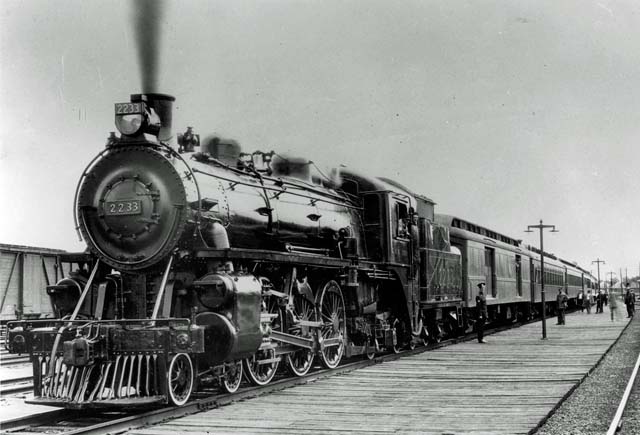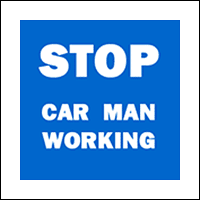
ASSISTANT MASTER CAR BUILDER, WESTERN LINES, CANADIAN PACIFIC RAILWAY

Owing to the short time I have had at my disposal, and the narrowness of the subject, my paper on Car Inspection will be brief.

The question of Car Inspection is, to my mind, a much more important position than it is generally credited with.
The attributes which go to make good car inspectors are intelligence and good judgment, both of which, they are called upon daily to exercise, as a misjudgment on their part is liable to cause loss of life and property. No man should be employed in this work unless he is competent by previous experience. On the arrival of trains, a good inspector takes his position at the side of the incoming train, thus enabling him to detect skidded or flat wheels , after the train comes to a standstill he proceeds to make a thorough examination of the train, but unfortunately for the inspector, the yard man comes along, cuts up the train, and switches it to different sidings. This I consider is wrong, sufficient time should be allowed to enable inspectors to examine trains before being switched.
, after the train comes to a standstill he proceeds to make a thorough examination of the train, but unfortunately for the inspector, the yard man comes along, cuts up the train, and switches it to different sidings. This I consider is wrong, sufficient time should be allowed to enable inspectors to examine trains before being switched.
Locomotives should be coupled to departing trains at least twenty minutes before leaving time, thus allowing time to test and adjust air brakes.
Yardmen and inspectors should keep in close touch with each other on matters pertaining to the arrival and departure of trains, and especially in regard to cars arriving equipped with or requiring safety heaters.
Conductors of both passenger and freight trains should notify inspectors on arrival of any defects known to exist, such as skidded or flat wheels, this being a defect that is liable to be passed by the best of inspectors, should the flat happen to be covered by the brake shoe or resting on rail.
Train parting caused by worn knuckles . This is another defect that inspectors are liable to pass, as coupler knuckles cannot be gauged unless cars are separated. Much evil results from allowing cars to run in bad condition. If cars are kept in good running order, the "stitch in time which saves nine" will prove to be true economy, even the application of a bolt or missing nut has saved hundreds of dollars worth of repairs.
. This is another defect that inspectors are liable to pass, as coupler knuckles cannot be gauged unless cars are separated. Much evil results from allowing cars to run in bad condition. If cars are kept in good running order, the "stitch in time which saves nine" will prove to be true economy, even the application of a bolt or missing nut has saved hundreds of dollars worth of repairs.
When defects are allowed to accumulate by ignoring the necessity of repairs, the expense of renewal is certainly heavier. When business is dull is a good time to thoroughly repair car equipment.
By adopting the above principles, detention to trains would be avoided, shunting expense less, and inspectors would be in a better position to pronounce their trains OK.
